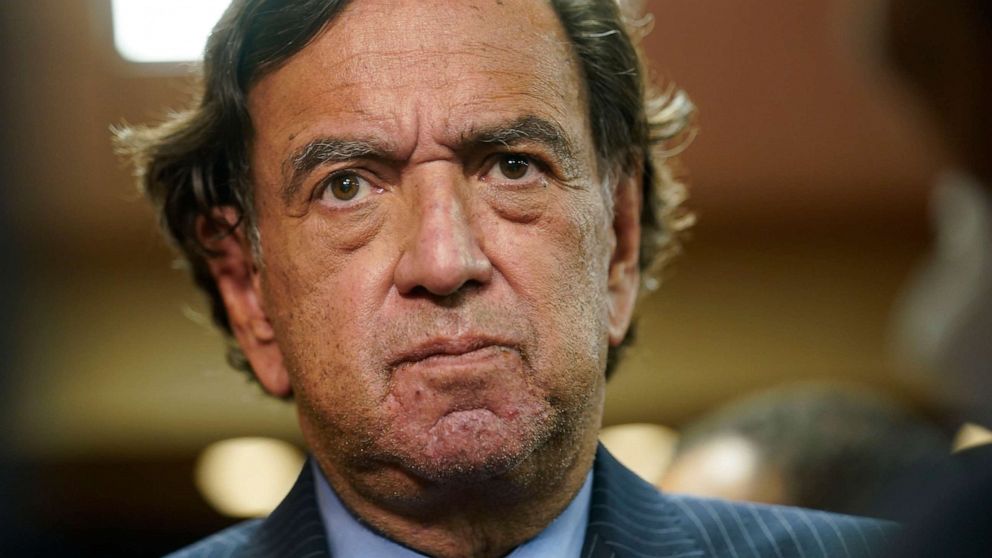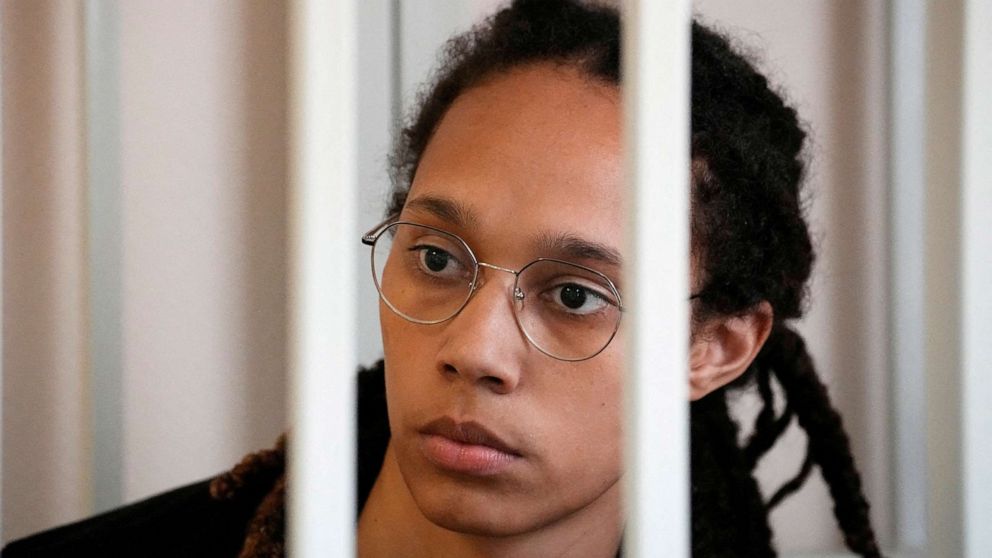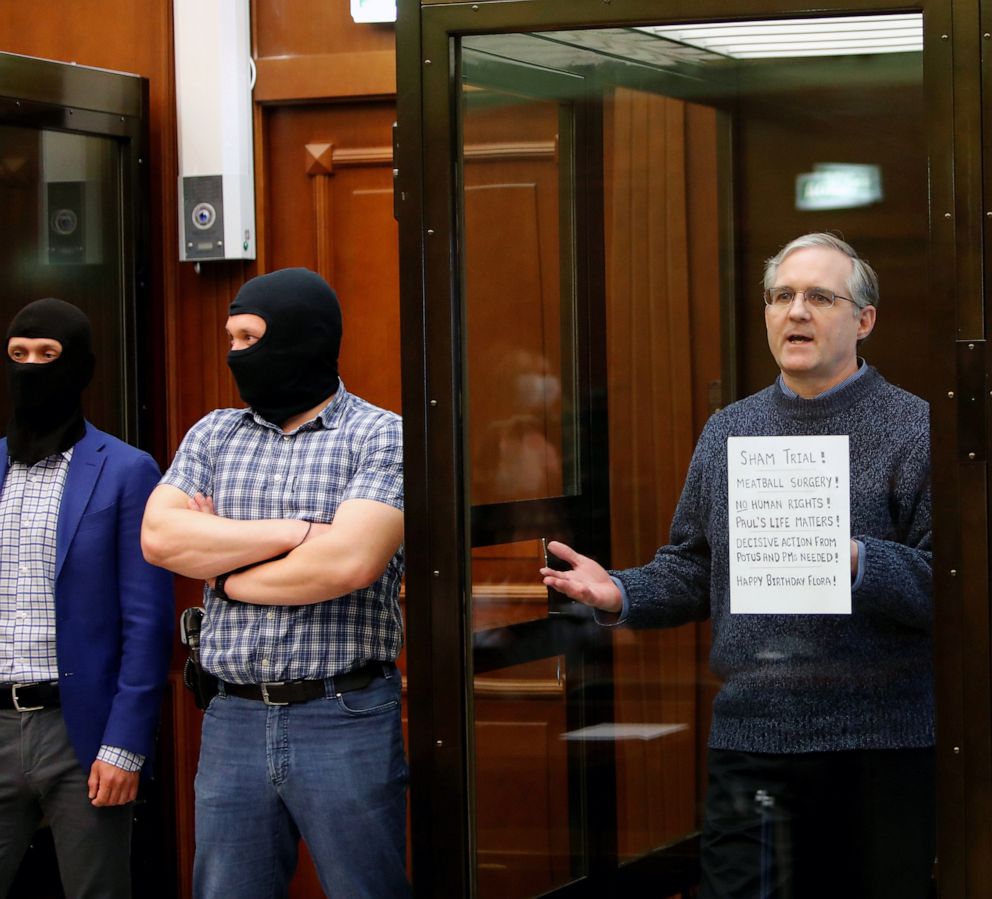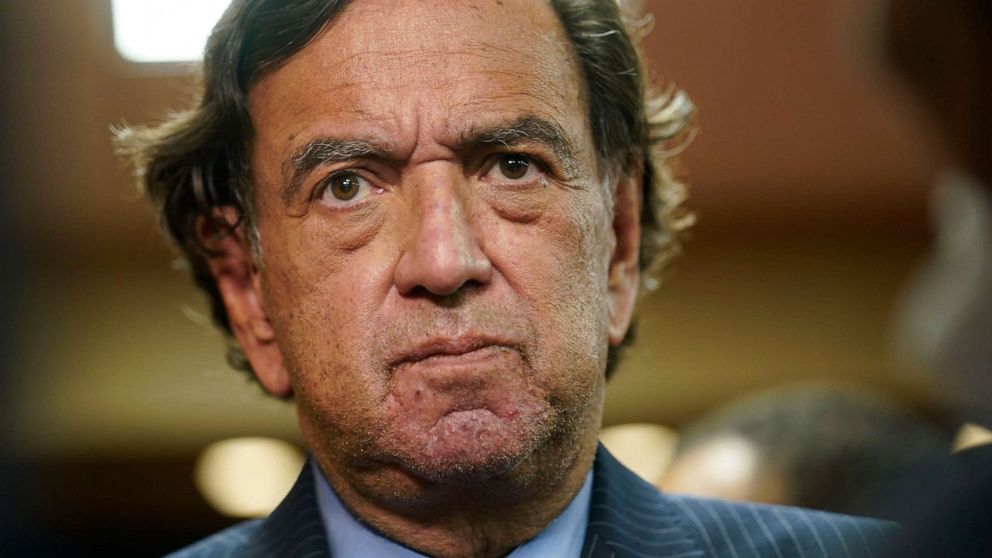Basketball star Brittney Griner and former Marine Paul Whelan should hopefully be released from Russia as part of a “two-for-two” prisoner swap, former U.S. Ambassador to the U.N. Bill Richardson said Sunday.
“My view is optimistic, I think she’s gonna be free. There’s gonna be a prisoner swap — I think it’s gonna be two-for-two. Can’t forget about Paul Whelan,” Richardson, who is an outside adviser involved in Griner’s case, said in an exclusive interview with ABC “This Week” anchor George Stephanopoulos.
Griner has been detained since February and was sentenced last week to nine years in prison after she was found guilty of drug charges in a Moscow-area court; she has said she accidentally traveled with vape cartridges containing hashish oil.
Whelan, who worked in corporate security after the Marines, was convicted of espionage — which he and the U.S. deny.
Late last month, U.S. Secretary of State Antony Blinken revealed the administration had made a “substantial proposal” to release Griner and Whelan, which sources told ABC News included freeing notorious Russian arms dealer Viktor Bout, who is serving a 25-year prison sentence in the U.S.
Richardson said Sunday that he didn’t fully agree with the Biden administration’s messaging strategy. “I wouldn’t have gone public as much as they did,” he said.

Former U.S. diplomat Bill Richardson speaks to reporters after a news conference in New York, Nov. 16, 2021.
Seth Wenig/AP, FILE
But, he said, sometimes comments about prisoner negotiations are made strategically when talks stall: “You want to throw a little bit of a bomb, and I think that’s what they did.”
Richardson described himself as a “catalyst” working on Griner’s case, along with other detainees. “I’ve been talking to the Russians. I talked to the White House,” he said, though he would not detail specifics of his communications.
The founder of the Richardson Center for Global Engagement — which “promotes global peace and dialogue,” according to the center’s website — Richardson recently helped free U.S. journalist Danny Fenster in Myanmar, he said. He was also involved in helping free ex-Marine Trevor Reed, who was released by Russia in April in another prisoner exchange.
Stephanopoulos questioned Richardson about why, in its comments on Griner and Whelan, the White House has publicly omitted Marc Fogel, an American educator held in Russia since August 2021.
“He’s facing a prison sentence right now. His infraction was similar to Brittney Griner’s. Shouldn’t he be included in this?” Stephanopoulos asked.
“All of these that are wrongfully detained need to come home. And our objective should be, despite prisoner exchanges that are not popular, to bring American hostages home,” Richardson said. “Some of these prisoner exchanges are not good. They don’t — the optics are not good. But we have to do it sometimes.”

WNBA star and two-time Olympic gold medalist Brittney Griner sits in a cage at a court room prior to a hearing, in Khimki, Russia, July 27, 2022.
Alexander Zemlianichenko/Pool via Reuters

In this June 15, 2020, file photo, former U.S. Marine Paul Whelan, who was detained and accused of espionage, holds a sign as he stands inside a defendants’ cage during his verdict hearing in Moscow.
Maxim Shemetov/Reuters, FILE
Stephanopoulos followed up to ask if such trades “will encourage America’s adversaries to actually detain more Americans”?
“There’s no data that supports that,” Richardson said. He cited the case of Fenster: “All they wanted was a photo-op. So data doesn’t support that prisoner exchanges are always the case. Yes, they’re increasing, especially with countries like Iran, Venezuela, Russia. But as unpleasant as they are, we have to bring American hostages home.”
Blinken said in late July he had spoken with the Russian foreign minister, Sergey Lavrov, to try and push forward on negotiations.
Richardson on Sunday complimented Lavrov’s role in the issue.
“Lavrov, he and I were U.N. ambassadors together at the same time,” Richardson said. “And I’m pleased that he’s pragmatic, that he’s sort of in charge and sent a good signal. I think the negotiations are going to be undertaken.”




